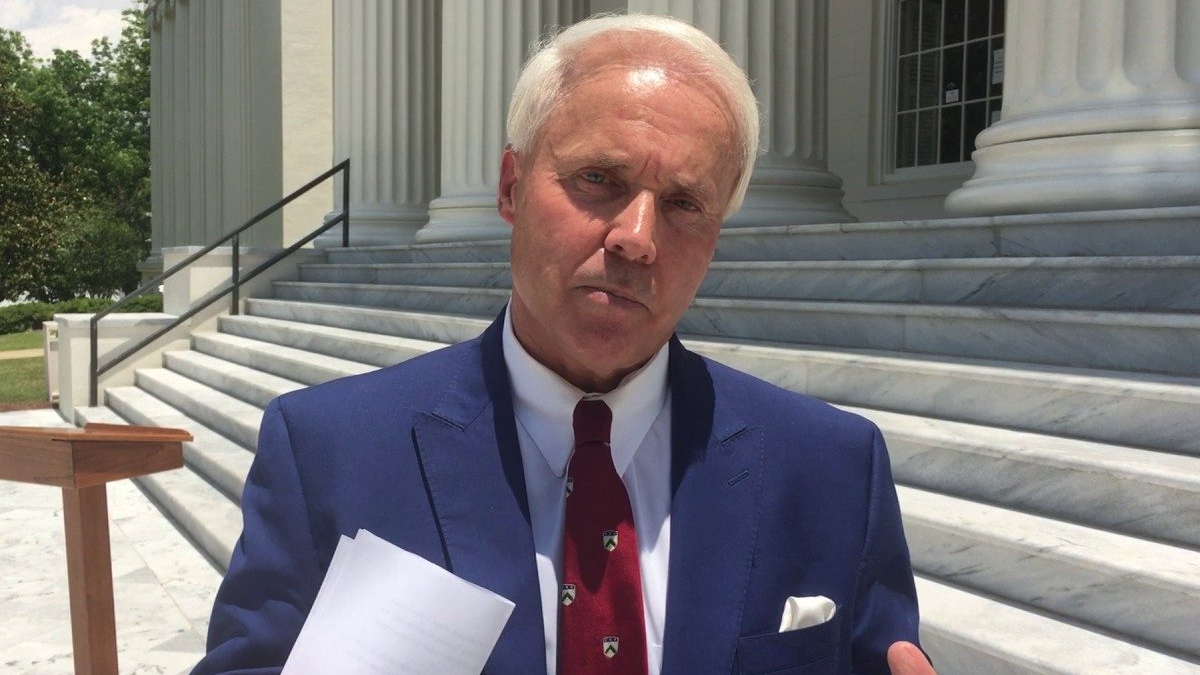|
Getting your Trinity Audio player ready...
|
Are Perry Hooper Jr. and Donald Trump birds of a feather? Doesn’t seem like much of stretch, based on what’s happened to Hooper this year.
Trump, after all, has extolled the virtues of forcing himself on women in the most grotesque ways. And according to some women, he’s done it.
Hooper, who co-chaired Trump’s 2016 campaign in Alabama, was accused of just that earlier this year. An unnamed woman accused the 68-year-old power broker of assaulting her at a downtown Montgomery restaurant on Aug. 16. She said he came up on her from behind, grabbed her breasts and waist, shoved his pelvis into her buttocks, and kissed her neck.
Four discreet acts of abuse. All before she was able to break free.
The National Sexual Violence Resource Center reports that 81 percent of women and 43 percent of men say that they have experienced sexual harassment or assault in some form. This woman unfortunately is one of many. What distinguishes her case from most others is that her alleged abuser is one of the most powerful men in the state.
Seven days after the alleged assault took place, Hooper was arrested. About three months later, on Nov. 18th, a grand jury indicted him. This means that if Hooper is convicted, he can be sentenced to as many as 10 years in prison and be assessed a $15,000 fine.
Ten days later, there came an interesting turn of events. Perry’s accuser has asked for the charges against him to be dropped.
Media reports reference an email she released through her attorney. “The matters relating to Mr. Hooper and me have been resolved and going through the turmoil of a trial would provide no more justice than getting a sincere public apology from Mr. Hooper. I so respect and appreciate law enforcement and the job they have to perform, nevertheless, I request these charges be dismissed,” her statement said.
This is what we call a flex. Perry’s accuser is saying “no thank you” to the justice system, and a hearty “yes please” to a form of protection survivors don’t always get.
“I think she would be at risk of being retraumatized,” said Dr. Tonya Perry, professor and chair of the Department of Social Work at Alabama A&M University. “She’s exercising her autonomy. When these kinds of allegations are made, women will sometimes question themselves. At the end of the day, advocates for women want us to be in an environment that conveys respect for women and their bodies, and what happens to them.”
Exercising her autonomy is another way of saying she has tapped into her own source of power. It’s a master stroke. She is attempting to protect herself while still holding Hooper accountable.
“She made the decision,” Perry said. “And it’s her power. She’s sending a message to other women and people to be wary of this person.”
This person – Hooper – is defined by his power as much as by anything else. He’s a long-time insurance executive, who also spent nearly 20 years in the Alabama Legislature. He’s served on some of the most influential boards in the capital city.
Power, undoubtedly, is his currency. Yet the accuser has attacked what Hooper may have thought was his greatest asset. She’s made it his greatest liability by maintaining the assault occurred but dictating new terms for resolution. Terms that attack his power.
A public apology admits culpability. It is a confession. It concedes that the accusation is true. If he gives her that, he will lose some of his power. Maybe a lot of it.
There may be a lesson in this for future sexual assault accusers. Maybe enduring the pain and strain of a court case isn’t always the answer. Maybe for some, the answer can be found outside of court while still using the justice system to leverage accountability.
If so, Hooper, Trump and others accused of sexual abuse by women may find themselves facing a new challenge. One thing many powerful men don’t want is to be accountable. That’s the whole point of having power.
So far, Hooper’s accuser seems to have successfully matched his power with some of her own. And she just might be winning.




















































